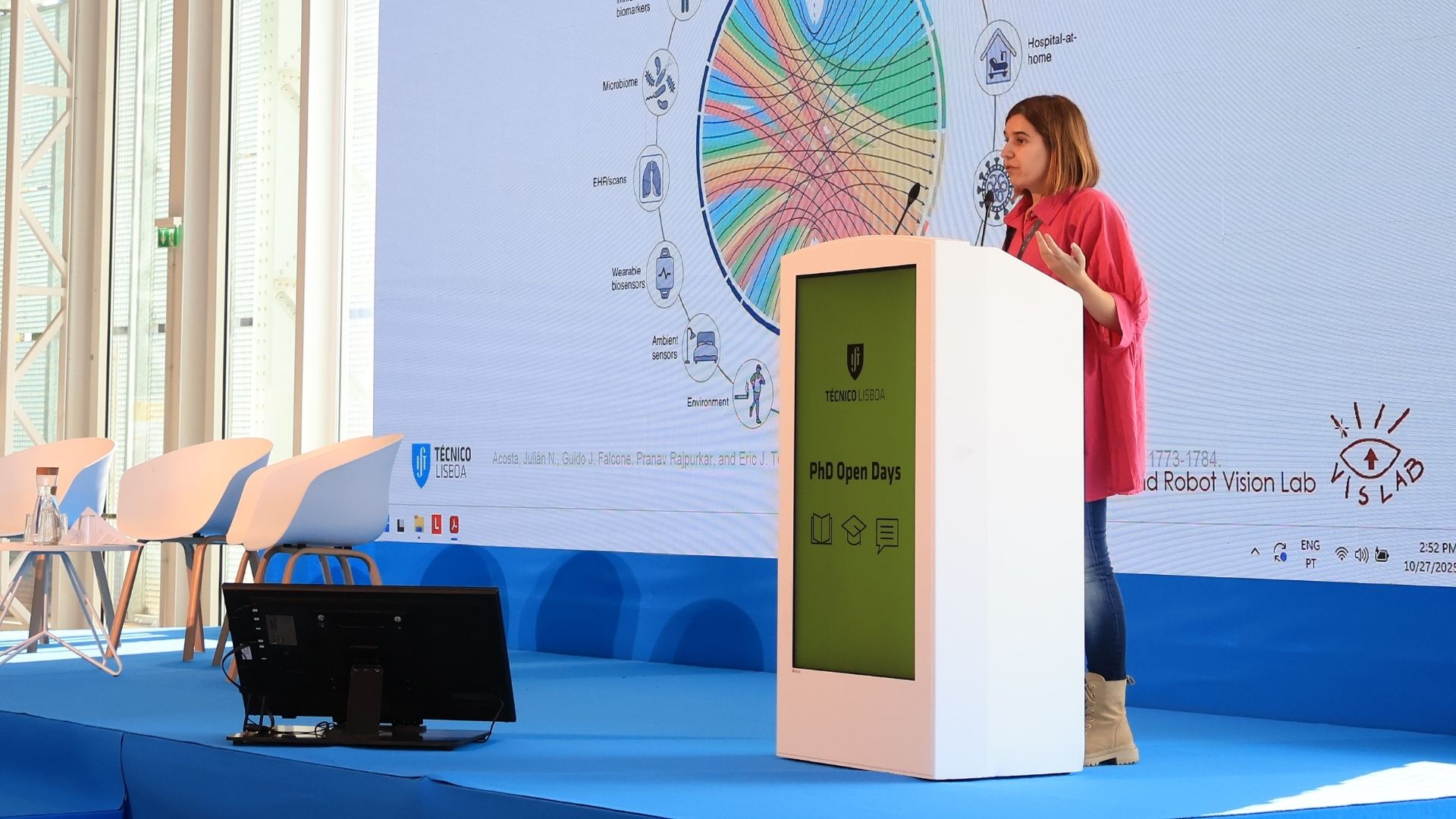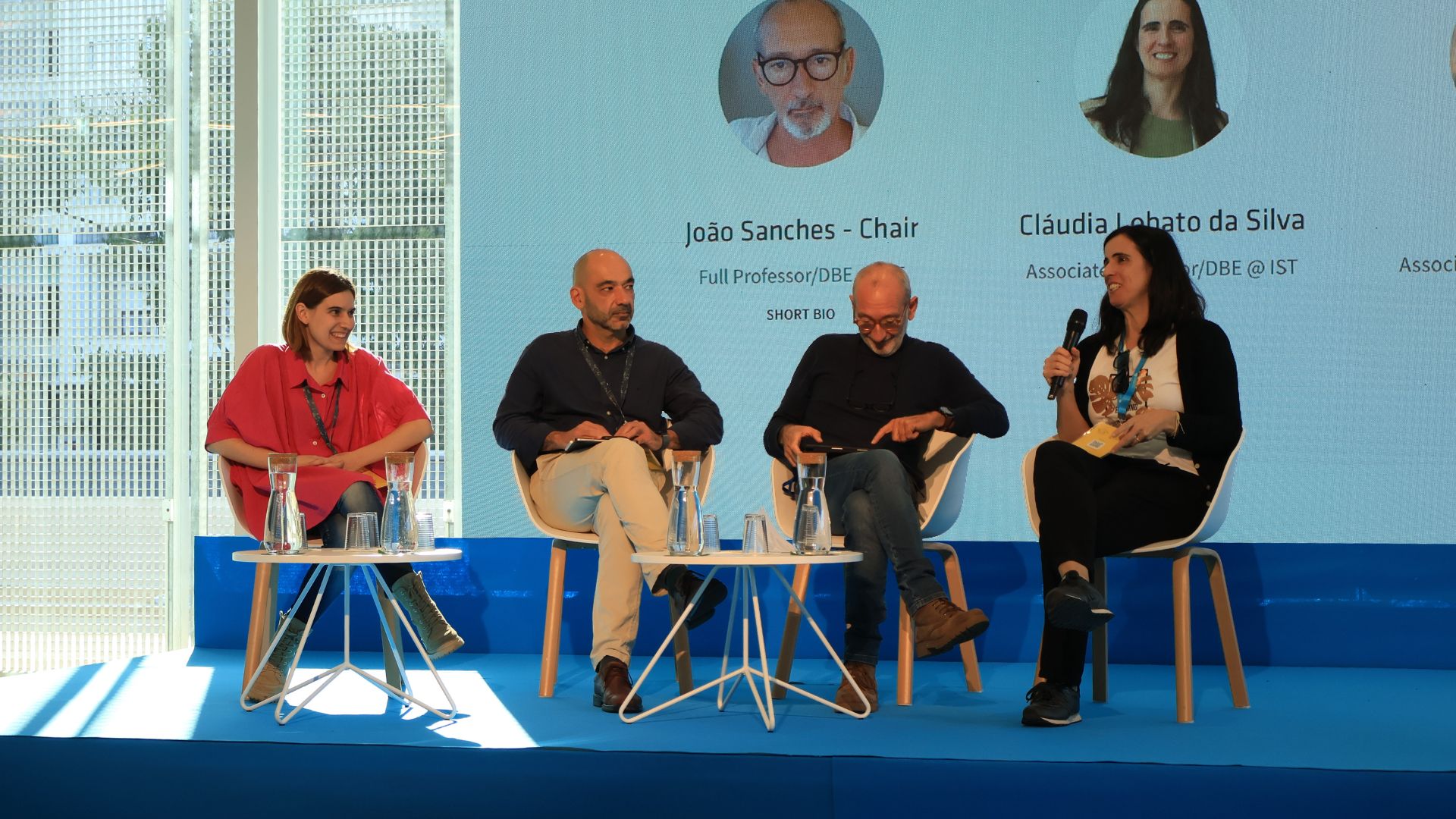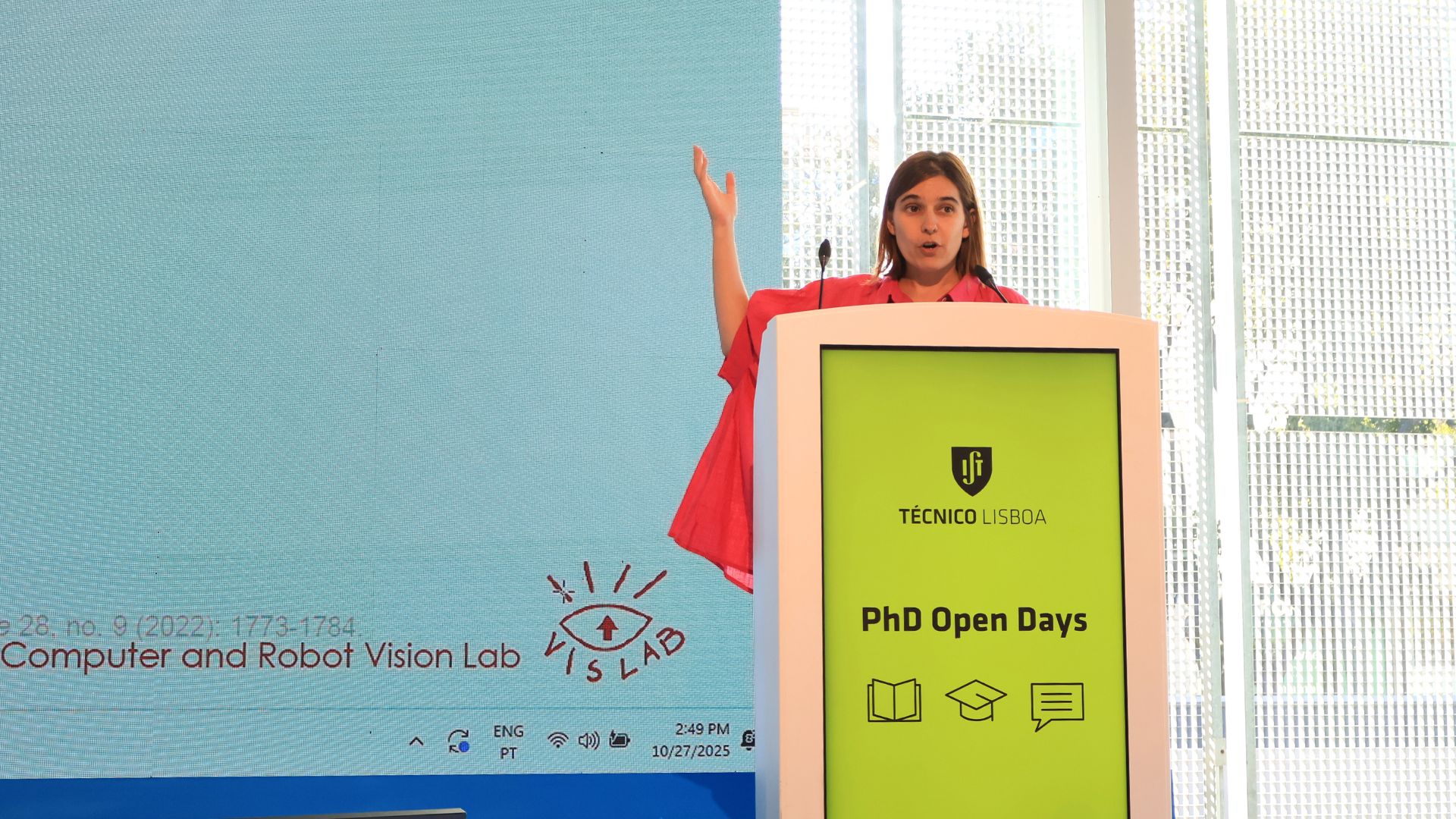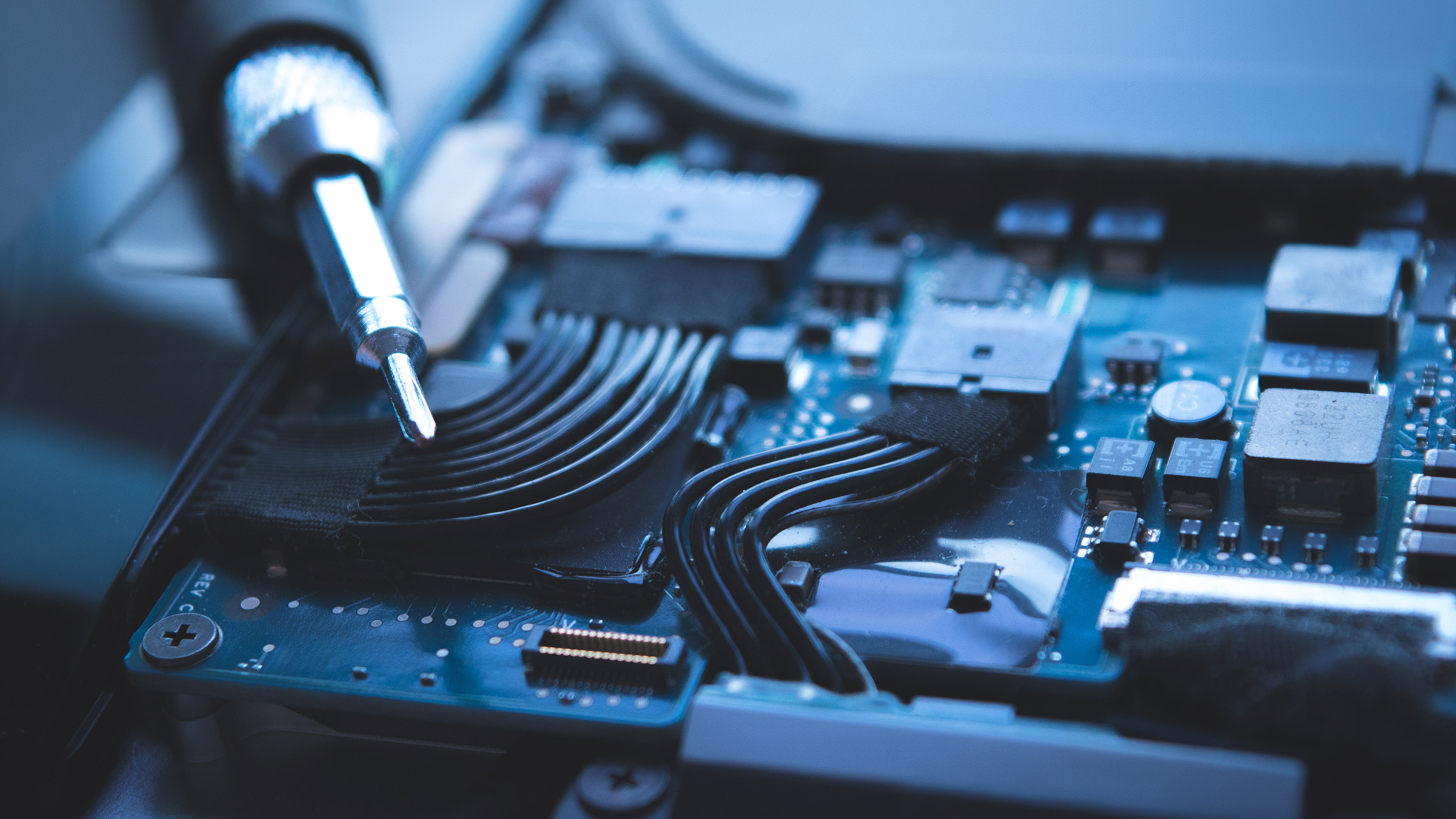Dream Big: Catarina Barata highlights AI applications in healthcare at the ‘Life and Health’ debate

The afternoon of the first day of the PhD Open Days began with the debate “Life and Health.” The session featured the participation of Catarina Barata, professor at the Department of Electrical and Computer Engineering and researcher at the Institute for Systems and Robotics (ISR), as well as Jorge Martins and Cláudia Lobato, both professors at Técnico. Moderated by João Sanches, the debate emerged from the need to address the challenges faced by today’s society — such as global pandemics, the growing number of chronic diseases, the demand for less invasive treatments, and more personalized therapies for expanding populations. In this context, the moderator highlighted the role of researchers in developing solutions using computing, data analysis, artificial intelligence, and advanced materials, while taking into account factors such as efficiency, responsiveness to stimuli, cost, biocompatibility, and sustainability, as well as ethical considerations.

Catarina Barata spoke about the existing challenges in applying artificial intelligence to healthcare. The researcher began by introducing the audience to “Madalena,” a two-year-old child. Even before her birth, “Madalena” had already generated a large amount of data through her mother’s prenatal exams. From birth onwards, and with each medical appointment, more data were collected as she grew — from various clinical tests such as blood analyses, magnetic resonance imaging, and other procedures — and the same occurred with her family members, resulting in an extensive amount of available information. For this reason, researchers began exploring new opportunities through the analysis of genetic, metabolic, microbiological, and environmental data, as well as information gathered from different types of sensors.
This new perspective on health enables the development of innovative technologies for clinical trials, precision medicine, improved home care, and even pandemic monitoring. It also allows the creation of “digital twins” — virtual versions of patients — that make it possible to apply personalized therapies and conduct testing without the use of animals.

“We have all this information. Can you see where the problem lies?” Following her presentation of some potential applications of artificial intelligence, Catarina Barata discussed the main challenges faced by researchers: data representation, the collection of multiple samples per patient, the integration of different data types, the management of longitudinal data (collected over time from the same individuals), and the lack of data — all combined with issues related to privacy, transparency, and model fairness, as well as differences between countries and cultures.
The golden age of AI in healthcare is only just starting.
Catarina Barata, professor at DEEC and researcher at ISR
In conclusion, the researcher encouraged students to pursue this field, emphasizing that as the amount of data continues to grow, a revolution in data storage will be needed. At the same time, new challenges and research opportunities will continue to emerge over time.
The debate concluded with answers to several questions raised by the audience.
